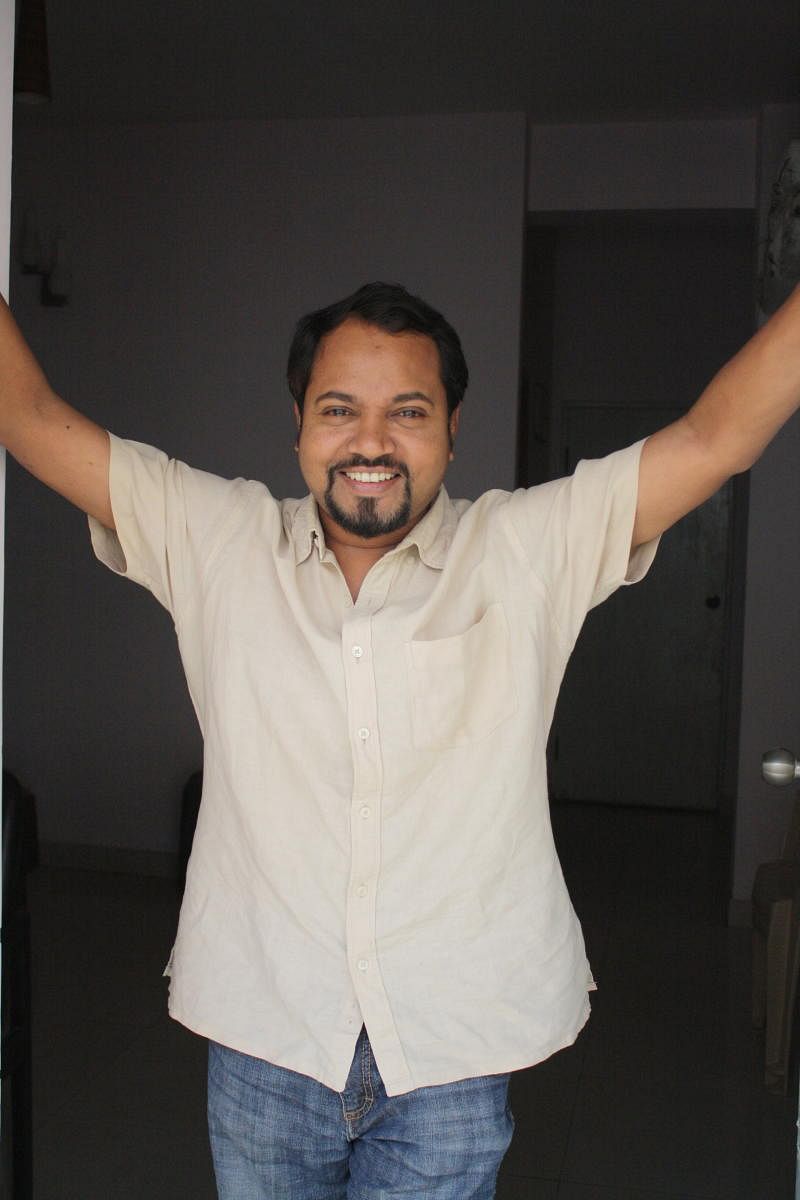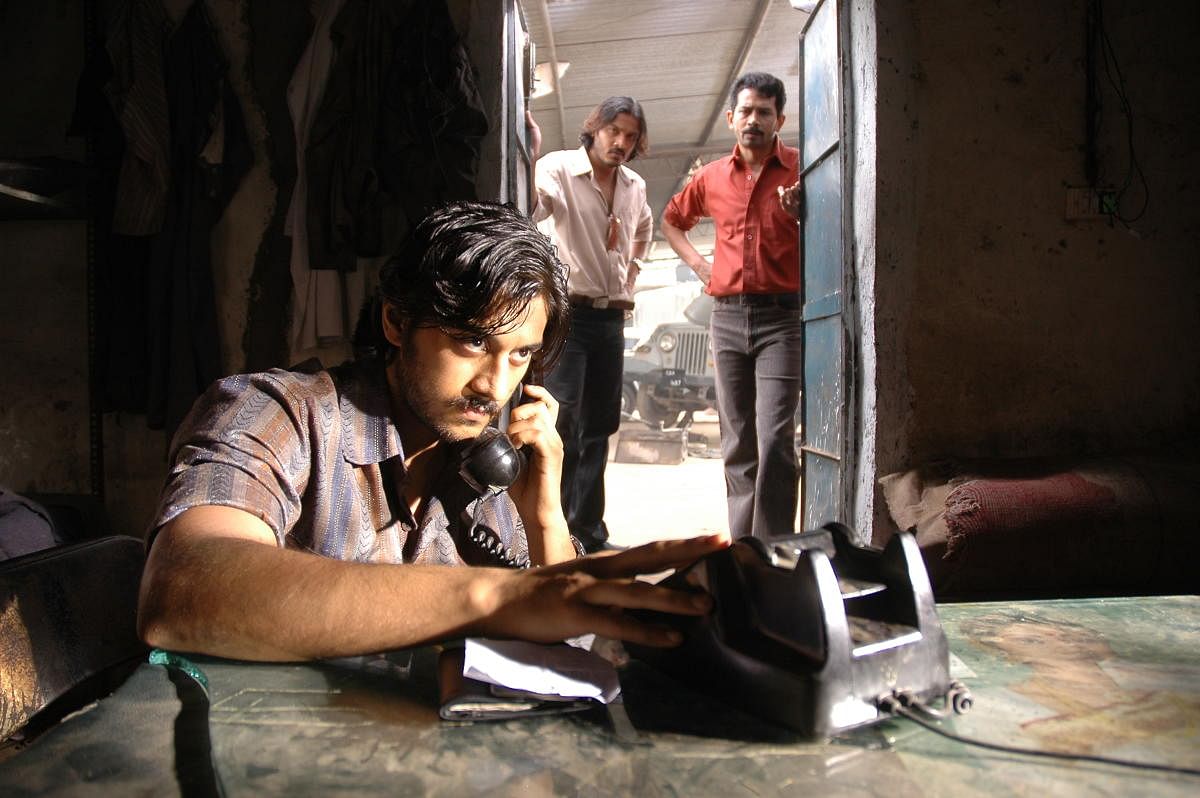

Traditionally, at least in South India, anxious parents sit down to talk to their children if they express a desire to move away from the beaten path after their pre-university course. In film-maker Chaitanya’s case, it was the other way round. His father K Marulasiddappa took him for a long walk after Chaitanya told him that he was thinking of pursuing engineering or medicine since he had done “quite well” in his PU. During the walk, Marulasiddappa reminded his son about the discussions that they had had so often on various topics including current affairs. Did he think that his plans for a BE or medicine fitted in with these kinds of interests? That walk convinced Chaitanya that his future lay elsewhere. That kind of a chat was almost unheard of those days.
What followed was a journalism degree from Christ College, Bengaluru, and a Masters in Communications from Hyderabad Central University. While in college, he had greatly enjoyed watching Mani Ratnam’s films. "I was really impressed with his films - sensible but commercial. Unless you make films that do well commercially, you will not get producers. There is a lot of fun making a film that a lot of people watch rather than a small jury watching it somewhere and giving you an award."
He had grown up in an atmosphere where he had been in the midst of many literary and theatre personalities. His grandfather, the late Dr G S Shivarudrappa - writer, poet and critic, had received the Central Sahitya Academy Award and had been Karnataka’s rashtrakavi. His mother, Jayanthi G S, is closely connected to theatre and is a costumier of repute, while his father is a Kannada writer and an authority on Kannada literature and theatre. Writers, poets, playwrights and theatre persons dropped in quite often at their residence. “We had a fantastic library at home. I grew up reading many classics. I used to try my hand at writing, and although I wrote terribly, my grandfather would say good things about it and gently tell me how it could be tweaked!” he laughed.
After his Master’s degree, he wanted to go across to Mumbai to explore creative possibilities.
“My father suggested that I meet Girish Karnad, who had spent a long time in Mumbai, and get some pointers,” he said. Karnad described to him in great detail of life in Mumbai. “He then very casually asked me if I was in any great hurry to go there - if not, he was directing a TV serial called Antharala, and if I wanted to, I could assist him with that. Who could refuse such a fantastic opportunity?” That was followed by another series called Swarajnama, which had Waheeda Rehman, Amrish Puri, Anant Nag and others working in it.
That led him to Karnad’s film adaptation of Kuvempu’s Kanooru Heggadithi. “I was promoted to associate director. By then I had understood how Karnad worked, and took care of all the logistics so that he could concentrate purely on the creative aspects. A Hindi-television-serial-version of Kanooru was also being shot simultaneously. During the shoot, Karnad’s winning of the Jnanpith Award was announced, and he had to leave for about seven days to receive it. He gave me the responsibility of directing the film for those few days. When he returned, he was happy with my work – and asked me to independently direct the Hindi TV version while he continued with the film. That gave me a lot of hands-on experience,” he said. This was 1999.
Although he had now acquired experience as a director, he didn’t get the commercial film breaks he expected because he was seen as a ‘parallel-film maker.’ He continued working in the audio-visual world, making corporate and ad films, and theatre. But the deep desire to make a film persisted. A film he wrote in 2002 with Jayant Kaikini and had Shivarajkumar failed to take off.
In the period thereafter, he did major current affairs programmes for CNN and BBC, and some documentaries. Karnad, who was producing three mini-series for Doordarshan — Poornachandra Tejaswi’s Chidamabara Rahasya, Devanoor Mahedava’s Kusuma Bale, and Shantinath Desai’s Om Namo, asked Chaitanya to helm Kusuma Bale and Om Namo.
Then Aa Dinagalu happened, which was based on a book written by Agni Sridhar, who had been a part of the underworld. Karnad wrote the screenplay. “That film happened by serendipity. How that happened is a long story by itself,” he said.
Thus began his cinematic journey that has had him complete five films — Suryakanthi, Aatagaara, Paraari, Aake, and Amma I Love You. He has consciously avoided leaving a directorial stamp on each of them, and sees them as films that gave him a chance to explore different genres — action, adult comedy, sociological thriller, horror and emotional. “I have no comfort zone. There is no ‘Chaitanya’ style of directing — I myself don’t know what that is!” he exclaimed. Although he has directed plays and TV serials, Chaitanya agrees that he is better known today as a film-maker.
He is currently writing the script for a film that is set in the underworld - his second in this genre. Chaitanya has a deep desire to direct a romantic film. “That’s a genre that I am dying to make! I am a huge fan of romantic films. But producers always say I have been good at making underworld films or thrillers and should continue doing just that. That’s the problem,” he says wistfully. “But I will make this film someday - that’s for sure,” he says, smiling.
This aatagaara hasn’t quite finished playing yet.